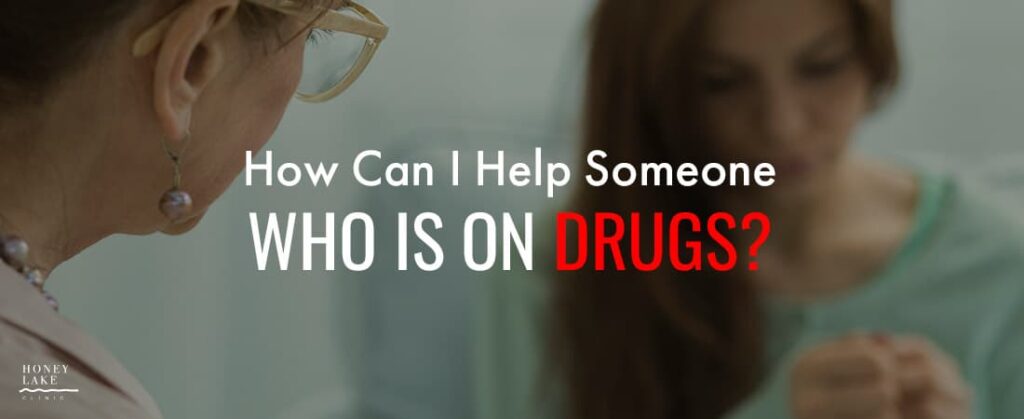How Can I Help Someone Who is on Drugs?
Trying to help a loved one who is struggling with substance abuse can be a heartbreaking experience. You may feel hopeless at times—as if there is no light at the end of the tunnel. As discouraging as it can be, it is vitally important that you continue to encourage your loved one to get the help they need.
Understanding Drug Addiction
People start using drugs for all different reasons—curiosity, to have a good time, because friends are doing it, to improve athletic performance, to numb emotional pain, and more. While substance use doesn’t automatically lead to abuse, it’s often hard to pinpoint where use moves from casual to problematic. No one sets out to become an addict.
Symptoms of Drug Abuse
There are signs to look for—both physical and behavioral—that indicate substance abuse. Each substance has its own unique manifestations, and symptoms of abuse vary. Some general signs that your loved one may be addicted include:
- Sudden change in behavior.
- Mood swings.
- Withdrawal from family members.
- Red or glassy eyes.
- Runny or stuffy nose.
- Problems at school or work.
- Lack of energy or motivation.
- Becoming careless about personal grooming.
- Loss of interest in hobbies, sports, and other favorite activities.
- Changing sleeping pattern.
- Sudden requests for money or a spike in how much money they spend.
How to Help Someone with A Drug Addiction
Based on years of experience, we at Honey Lake strongly believe helping a loved one dealing with drug abuse isn’t easy, and there’s no magic formula that will get your loved one to stop using. However, here are some suggestions on how to help a loved one get treatment for their drug addiction:
Educate Yourself About Addiction
Addiction is complex. Taking the time to understand your loved one’s disease and how it affects them is incredibly beneficial to both you and your loved one. It will also help you become more aware of the signs that your loved one needs help.
Offer Your Support
Addicts don’t always understand how much their family and friends love them. Talk to your loved one about your concerns, and don’t wait for them to hit rock bottom to speak up. Let them know that you’re going to support them on their journey to recovery.
Encourage Them to Get Help
As with other diseases, the earlier addiction is treated, the better. But don’t be surprised if you’re met with denial or excuses as to why they can’t or won’t seek treatment. Be persistent about how important it is that they enter treatment for their addiction, but avoid making them feel guilty or ashamed in the process.
Support Recovery as an Ongoing Process
Once your loved one decides to enter treatment, it’s essential that you remain involved. Continue supporting their participation in ongoing care, meetings, and recovery support groups. Be the support system that they need, and show them that you’ll be there every step of the way.
What to Avoid When Talking to a Loved One About Addiction
Here at Honey Lake Clinic, we believe when talking to a loved one about getting treatment for their addiction, here are some things to avoid:
- Preaching, lecturing, threatening or moralizing your loved one.
- Emotional appeals that may increase the feelings of guilt and the compulsion to use drugs.
- Lying or making excuses for their behavior.
- Taking over their responsibilities. Doing this protects them from the consequences of their behavior.
- Enabling their behavior by covering up the abuse or giving them money for drugs.
- Arguing with your loved one when they’re using drugs. During this time, your loved one won’t be able to hold a rational conversation and likely won’t be open to what you have to say.
- Feeling guilty or responsible for their behavior. It’s not your fault.
If you feel that your loved one is abusing drugs, the best thing you can do is to encourage them to seek treatment for their addiction. Be loving and supportive, but also know that they’re going to make excuses for their behavior. Be firm in what you want, and keep encouraging them to get help. Although this isn’t easy to do, it’s a critical first step in helping them achieve a healthy and happy live in recovery.
We Can Help!
Our staff is standing by to answer any questions you might have about substance abuse, addiction, and treatment.
It’s important to recognize, abuse and addiction don’t happen in a vacuum. The path to recovery and wholeness involves getting to the root the problem. To get at underlying hurt and bring lasting healing takes a holistic—spirit, mind and body—approach to addiction diagnosis, management and treatment.
At Honey Lake Clinic, our experienced doctors and staff strongly believe that faith-based treatment, encompassing spiritual, physical and mental health, will help clients and their families bring spiritual power and clearer psychological understanding to their healing and recovery.
